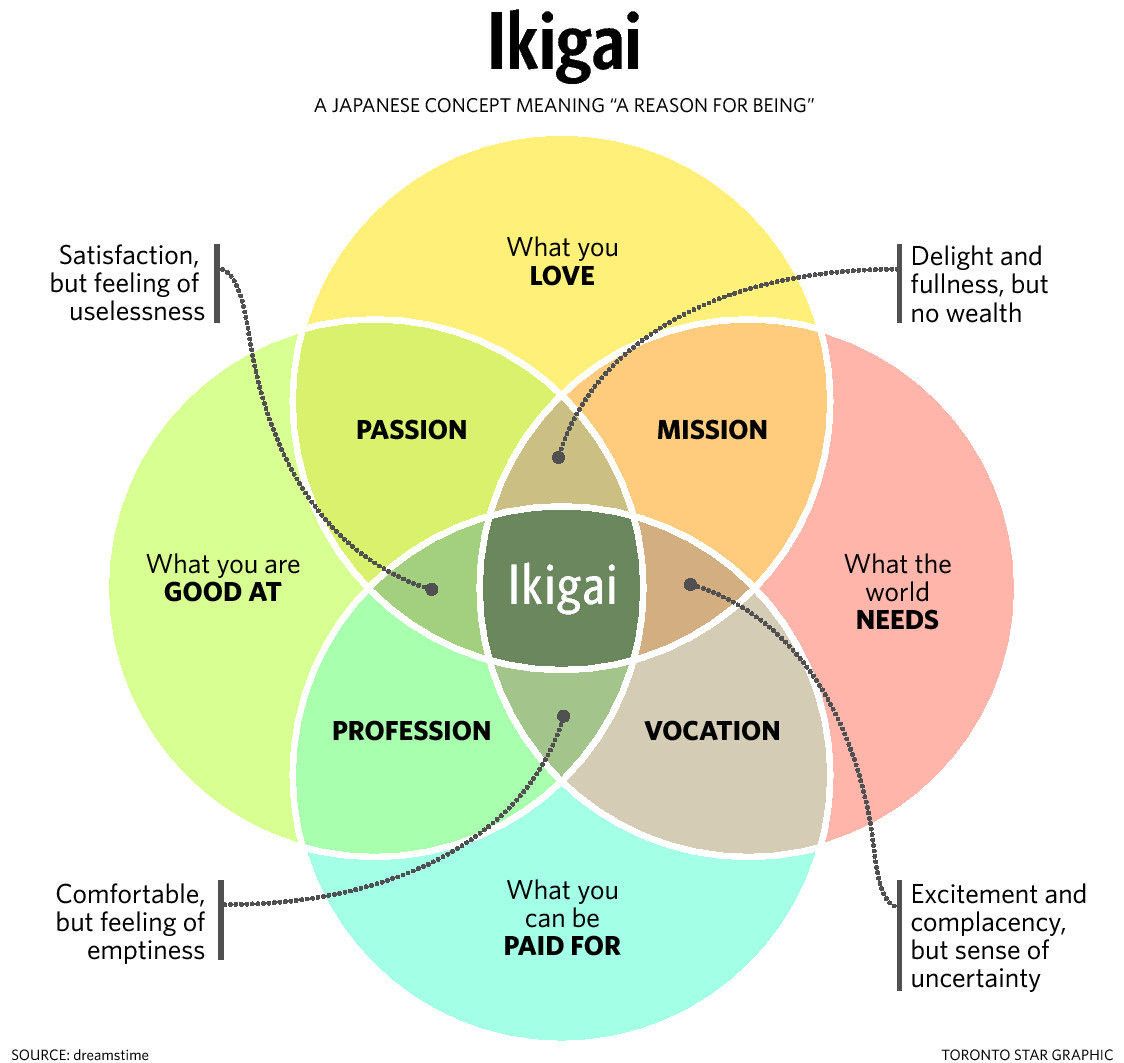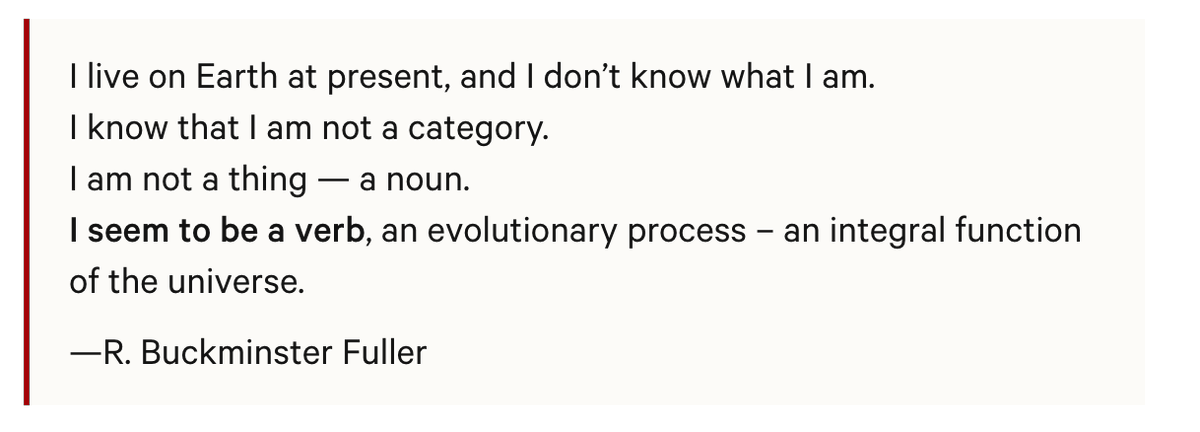“A jack of all trades is a master of none.”
A well-known phrase, but there& #39;s more to it...
“A jack of all trades is a master of none, but oftentimes better than a master of one.”
The difference is night & day.
Why is the former so common, and the latter unknown?
(*THREAD*)
A well-known phrase, but there& #39;s more to it...
“A jack of all trades is a master of none, but oftentimes better than a master of one.”
The difference is night & day.
Why is the former so common, and the latter unknown?
(*THREAD*)
The answer lies in modern society’s preference for *specialization*.
Following unprecedented growth during the industrial revolution, businesses faced more competition than ever. Efficiency became a top priority.
They found a solution: Division of Labor.
Following unprecedented growth during the industrial revolution, businesses faced more competition than ever. Efficiency became a top priority.
They found a solution: Division of Labor.
By dividing the tasks needed to produce goods and services, individual workers could focus on specific tasks rather than developing a variety of expertise.
In order to maximize efficiency of specialization, workers need to stay in the same role for prolonged periods of time.
In order to maximize efficiency of specialization, workers need to stay in the same role for prolonged periods of time.
But this comes at the cost of workers& #39; freedom.
In the U.S., if you’re employed with a company, you get healthcare. Otherwise, you’re out of luck.
As a result, workers are hesitant to switch jobs.
Many stay at the same job year after year, even if they& #39;re unhappy.
In the U.S., if you’re employed with a company, you get healthcare. Otherwise, you’re out of luck.
As a result, workers are hesitant to switch jobs.
Many stay at the same job year after year, even if they& #39;re unhappy.
The lack of freedom might be a worthy sacrifice in exchange for job security.
But therein lies the problem: few companies can actually guarantee long-term stability.
But therein lies the problem: few companies can actually guarantee long-term stability.
Many workers already face ambiguity with their job security due to the impending effects of automation.
Now, with the tornado of change brought about by the COVID pandemic, the brittleness of even large corporations’ stability has become apparent.
Now, with the tornado of change brought about by the COVID pandemic, the brittleness of even large corporations’ stability has become apparent.
So how do we survive these waves of change?
Adaptability.
Workers need to embrace a life of learning and self-evolution in order to thrive.
Luckily, we have a template for how to do just that:
The polymath.
Adaptability.
Workers need to embrace a life of learning and self-evolution in order to thrive.
Luckily, we have a template for how to do just that:
The polymath.
Polymaths engage in extended learning across disparate fields, and apply their learnings to connect ideas and solve problems in unique ways.
They’re well suited to thrive in a constantly changing environment.
The polymath approach yields 3 key advantages:
They’re well suited to thrive in a constantly changing environment.
The polymath approach yields 3 key advantages:
1) Differentiation
Inevitably, you will start to hit diminishing returns of specialization on one pursuit. (Limits of Depth)
Once this happens, your best bet is to explore other pursuits and diversify your skills. (Opportunities of Breadth)
Inevitably, you will start to hit diminishing returns of specialization on one pursuit. (Limits of Depth)
Once this happens, your best bet is to explore other pursuits and diversify your skills. (Opportunities of Breadth)
2) Mental Models
As you gain experience in a particular area, you develop mental models based on its structures and dynamics.
These are widely known *within* the industry, but not outside of it.
When you switch to new areas, you can bring your models with you.
As you gain experience in a particular area, you develop mental models based on its structures and dynamics.
These are widely known *within* the industry, but not outside of it.
When you switch to new areas, you can bring your models with you.
By applying models from different areas, you& #39;ll be able to solve problems in a way that few others can.
The more pursuits you expose yourself to, the more models you have to work from, and the more you can stand out from the competition.
The more pursuits you expose yourself to, the more models you have to work from, and the more you can stand out from the competition.
3) Purpose
I believe the strongest reason polymaths become polymaths is that they simply don’t have a choice.
The urge to pursue one’s inner passions is strong, and those blessed with a variety of them often find them difficult to ignore.
I believe the strongest reason polymaths become polymaths is that they simply don’t have a choice.
The urge to pursue one’s inner passions is strong, and those blessed with a variety of them often find them difficult to ignore.
The polymath’s search for meaning and purpose through different pursuits can be related to the Japanese concept of __Ikigai__ (“a reason for being”).
Instead of hiding our passions, we should embrace them and recognize their role in a meaningful life.
Instead of hiding our passions, we should embrace them and recognize their role in a meaningful life.
It can take many years or even decades before one sees any intersection between different circles.
Yet a single taste can be intoxicating, and motivate a lifetime of pursuit.
What purpose could be greater than discovering purpose itself?
Yet a single taste can be intoxicating, and motivate a lifetime of pursuit.
What purpose could be greater than discovering purpose itself?
I’ve been extremely lucky and privileged to have explored a lot of varied pursuits in my life.
I’ve been a startup founder, software engineer, manager, teacher, public speaker, advisor, DJ and writer... to name a few.
I’ve been a startup founder, software engineer, manager, teacher, public speaker, advisor, DJ and writer... to name a few.
After studying polymaths for a while, I now have a model to aspire to, and am excited to see what happens now that I& #39;m more *intentional* about embracing my inner polymath.
Looking back, I realized I& #39;ve already benefitted significantly from this approach to life:
Looking back, I realized I& #39;ve already benefitted significantly from this approach to life:
After studying polymaths for a while, I now have a model to aspire to, and am excited to see what happens now that I& #39;m more *intentional* about embracing my inner polymath.
Looking back, I realized I& #39;ve already benefitted significantly from this approach to life:
Looking back, I realized I& #39;ve already benefitted significantly from this approach to life:
As a DJ, I had to learn to not just play my playlist, but to pay close attention to the audience and cater to them.
Looking back, I think each one of my sets ( https://soundcloud.com/daretodj )">https://soundcloud.com/daretodj&... was a live lesson on how to find product-market fit.
Looking back, I think each one of my sets ( https://soundcloud.com/daretodj )">https://soundcloud.com/daretodj&... was a live lesson on how to find product-market fit.
Thanks to my obsession with animation ( https://vimeo.com/134677777 ),">https://vimeo.com/134677777... I learned to incorporate the principles of animation into the software I built.
I applied this while building digital healthcare solutions. I brought the patient experience to life.
I applied this while building digital healthcare solutions. I brought the patient experience to life.
The list goes on...
But there are also challenges that come with this approach.
I& #39;ve found it harder to fit into social groups and identify with others. My answer to "So, what do you do?" is quite complicated compared to most. Sometimes, it& #39;s just hard to relate.
But there are also challenges that come with this approach.
I& #39;ve found it harder to fit into social groups and identify with others. My answer to "So, what do you do?" is quite complicated compared to most. Sometimes, it& #39;s just hard to relate.
I& #39;ve also encountered my fair share of pushback when I explore a new pursuit.
Society wants you to stay in your lane, and sometimes it& #39;ll try and push you back into place.
Eliezer Yudkowsky notes that society views these attemps as a & #39;status violation& #39;. It explains a lot.
Society wants you to stay in your lane, and sometimes it& #39;ll try and push you back into place.
Eliezer Yudkowsky notes that society views these attemps as a & #39;status violation& #39;. It explains a lot.
In order to defy the social norms and unspoken rules, you’ll need to dig deep within yourself.
As Emerson teaches, you need to build self reliance.
Trust yourself.
Give yourself permission.
As Emerson teaches, you need to build self reliance.
Trust yourself.
Give yourself permission.
The best place to start?
That thing you secretly want to do.
(...What just came to mind? That might be a signal…)
That thing you secretly want to do.
(...What just came to mind? That might be a signal…)
The world seeks to label us, categorize us and pack us neatly into boxes.
But we are humans, not objects. We are viscous. We dance around the lines between solid and liquid.
We change and evolve. We ebb and flow. We shrink and grow.
Follow the rivers that flow within you.
But we are humans, not objects. We are viscous. We dance around the lines between solid and liquid.
We change and evolve. We ebb and flow. We shrink and grow.
Follow the rivers that flow within you.
If you made it this far, thanks for reading!  https://abs.twimg.com/emoji/v2/... draggable="false" alt="🙏🏽" title="Folded hands (mittlerer Hautton)" aria-label="Emoji: Folded hands (mittlerer Hautton)"> I hope it has given you a tiny bit of insight & inspiration about the polymath approach to life.
https://abs.twimg.com/emoji/v2/... draggable="false" alt="🙏🏽" title="Folded hands (mittlerer Hautton)" aria-label="Emoji: Folded hands (mittlerer Hautton)"> I hope it has given you a tiny bit of insight & inspiration about the polymath approach to life.
This thread is an adaption of my essay, "The Polymath Playbook": https://salman.io/posts/polymath-playbook/,">https://salman.io/posts/pol... which goes into more detail on these topics.
This thread is an adaption of my essay, "The Polymath Playbook": https://salman.io/posts/polymath-playbook/,">https://salman.io/posts/pol... which goes into more detail on these topics.
You can find more thoughts & essays in my weekly newsletter,  https://abs.twimg.com/emoji/v2/... draggable="false" alt="🦊" title="Fuchsgesicht" aria-label="Emoji: Fuchsgesicht"> Quick Brown Fox:
https://abs.twimg.com/emoji/v2/... draggable="false" alt="🦊" title="Fuchsgesicht" aria-label="Emoji: Fuchsgesicht"> Quick Brown Fox:
https://brownfox.substack.com/
I">https://brownfox.substack.com/">... explore creativity with curiosity, and embrace the path of learning in public by sharing my trials & tribulations along the way.
Hope to see you at the next one!
https://brownfox.substack.com/
I">https://brownfox.substack.com/">... explore creativity with curiosity, and embrace the path of learning in public by sharing my trials & tribulations along the way.
Hope to see you at the next one!

 Read on Twitter
Read on Twitter






